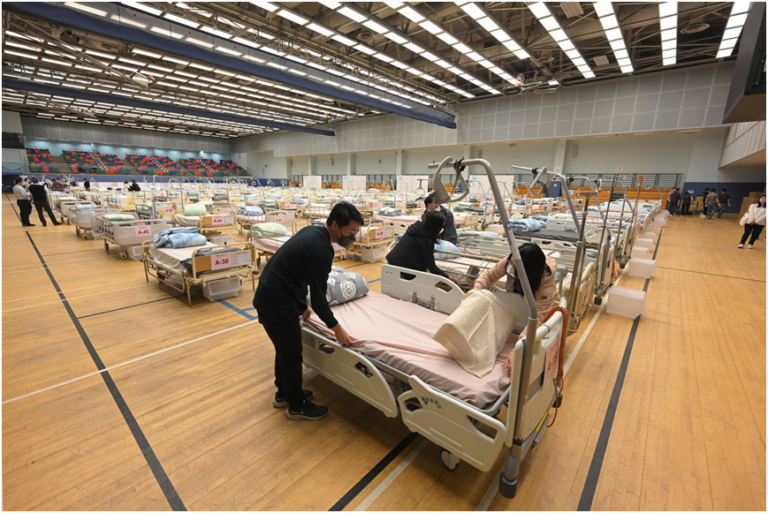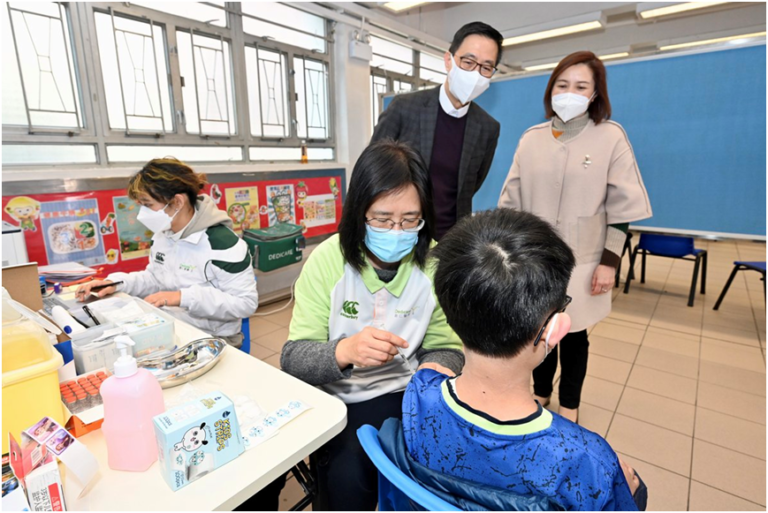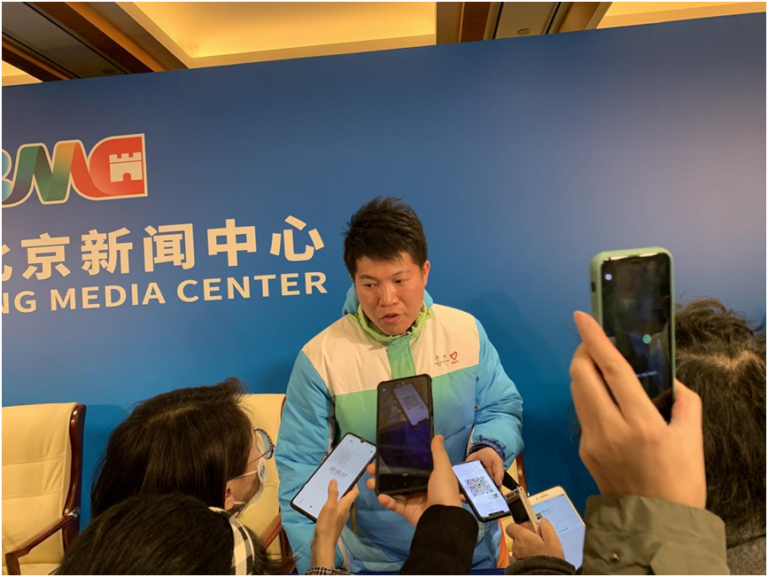
By Li Changyu, Song Shuang, People’s Daily
On the morning of March 7, political advisors from Hong Kong, Macao and Taiwan attended via video link the second group interview during thefifth session of the 13th National Committee of the Chinese People’s Political Consultative Conference (CPPCC), China’s top political advisory body, heldat the Great Hall of the People in Beijing.
During the interview, they responded to people’s concerns about COVID-19 epidemic prevention and control, construction of the Guangdong-Hong Kong-Macao Greater Bay Area as well as relations between the Chinese mainland and Taiwan.
“Hong Kong is faced with its worst coronavirus wave so far. I would like to express my heartfelt thanks to the central government and all the Chinese people, especially medical staff, workers and experts from the mainland who have fought against the pandemic in Hong Kong in the front line and given us great help just when we need it the most,” said Kenneth Fok Kai-kong, a member of the CPPCC National Committee as well as a member of the Legislative Council of the Hong Kong Special Administrative Region (HKSAR).
Residents in Hong Kong and on the Chinese mainland belong to one family and have forged a strong bond; as long as they join hands, any difficulty can be surmounted, Fok pointed out.

Noting that this year marks the 25th anniversary of the HKSAR’s return to the motherland, Fok said that a priority for Hong Kong to march from stability to prosperity is to bolster residents’ patriotism and national identity.
A reliable method for promoting patriotic education is to facilitate exchanges and cooperation between Hong Kong and the Chinese mainland, said Fok, who considers it necessary to enhance Hong Kong youths’ sense of national identity through communication with people from the Chinese mainland.
“The national flag and anthem symbolize our country. I hope all the schools in Hong Kong, as well as future activities for youth and patriotic activities will place more emphasis on education related to the national flag and anthem. People should receive such education since their childhood,” he noted, stressing that respecting the national flag and anthem is the bottommost responsibility of every citizen.
Fok suggested taking the 2022 Olympic and Paralympic Winter Games in Beijing and the 15th National Games of China to be co-hosted in 2025 by Guangdong, Hong Kong, and Macao as an opportunity to hold more sports-themed exchanges and activities to promote the integration of sports industry into the development of the Greater Bay Area.
Such exchanges and activities help Hong Kong youth not only realize their dreams, but make greater contributions to the overall development of the Greater Bay Area, he said.
Love for the motherland and Macao and genuine support for the Communist Party of China (CPC) is a general consensus among all walks of life in Macao as well as a mainstream value in the region, said Wu Zhiliang, a member of the CPPCC National Committee and chairman of the executive committee of the Macao Foundation.
The large-scale exhibition marking the centenary of the CPC held by the Macao Foundation last year recorded the highest average daily number of visitors among exhibitions in Macao, he pointed out.
He believes that historical, cultural and patriotic education helps cultivate a sense of belonging to the motherland among people in Macao, especially the youth, and makes Macao more closely connected with the Chinese mainland.

During the past 22 years since Macao’s return to the motherland, the region has witnessed the fastest economic development and the greatest improvement in people’s wellbeing in its history,and Macaopeople shared the greatest sense of dignity and glory about the motherland, according to Wu, who added that with patriotic education and national identity, Macao will certainly be better integrated into the overall development of the country and embrace greater prosperity and stability.
Jiang Erxiong, a member of the CPPCC National Committee and president of the Fujian Federation of Taiwan Compatriots, shared the story of Chen Wencheng, a young man from Taiwan during the interview.
“Chen went to college in Beijing in 2011 and became a teacher at the Beijing Sport University after graduation. He actively publicized the Beijing Winter Olympics as a volunteer of the grand sports event, and organized activities to help college students from Taiwan experience skiing in Beijing,” Jiang said.
There are more than 40,000 young people from Taiwan in southeast China’s Fujian province alone, said Jiang, adding that young people in Taiwan and on the mainland enjoy a close bond and form a strong force for realizing the great rejuvenation of the Chinese nation.
The new era is an era in which the Chinese nation achieves major development goals and makes major accomplishments, Jiang noted.
The motherland is always the strong backing for young people from Taiwan and needs the joint efforts of young people on both sides of the Taiwan Strait for better development, Jiang said, adding that Taiwan youth are welcome to pursue and realize their dreams on the mainland.










